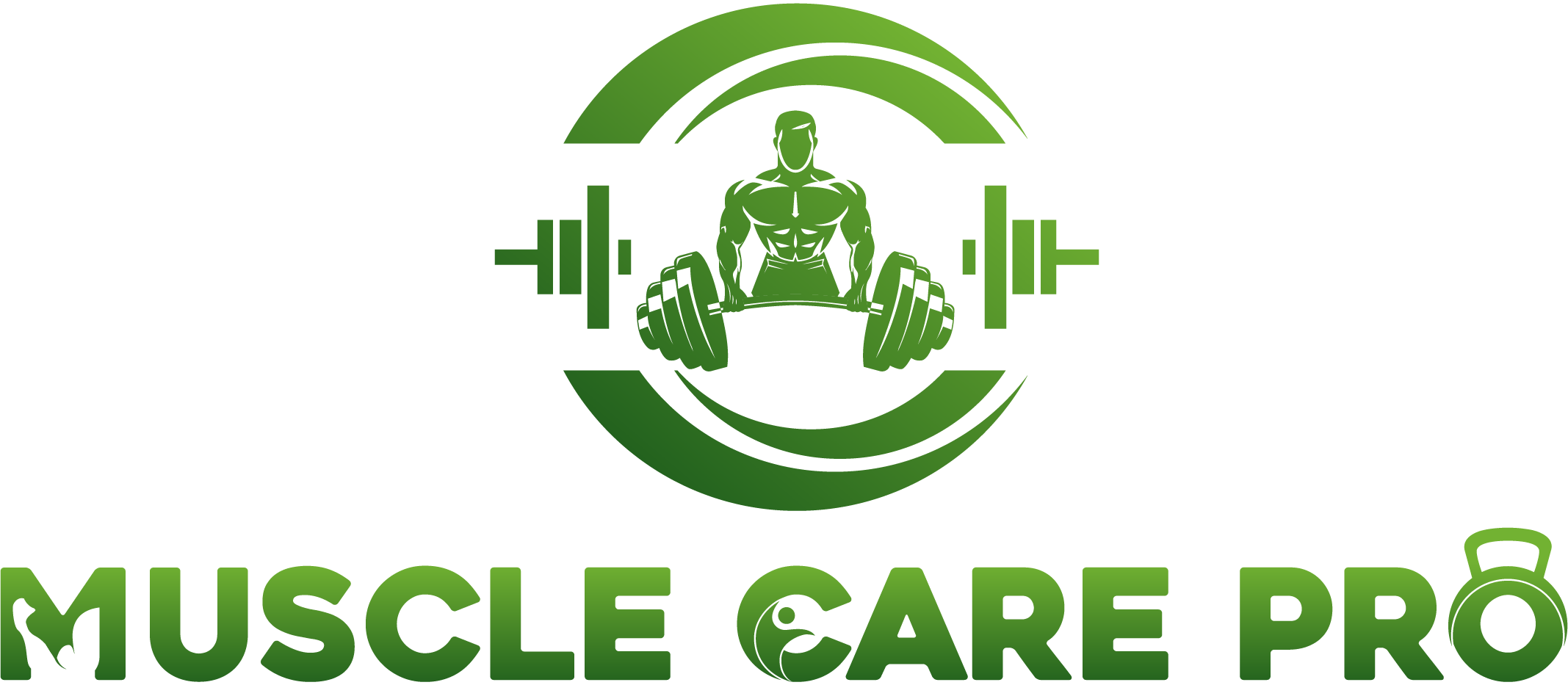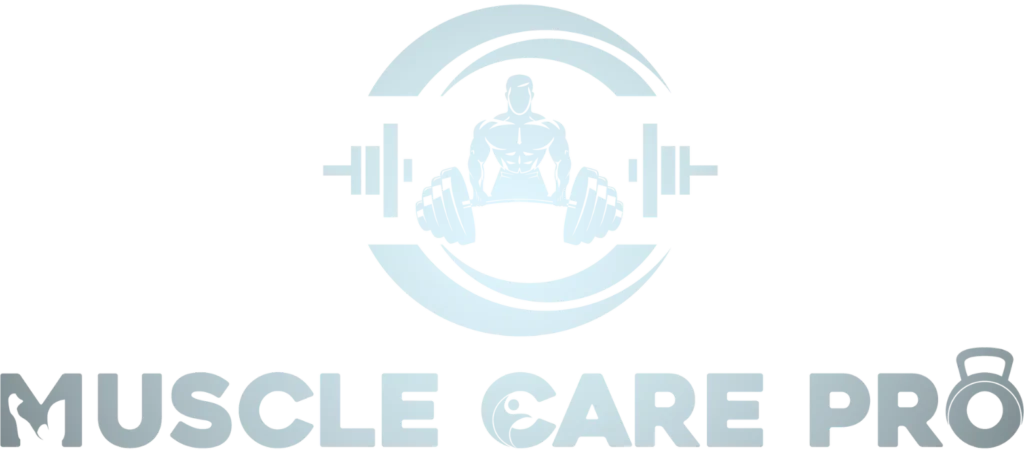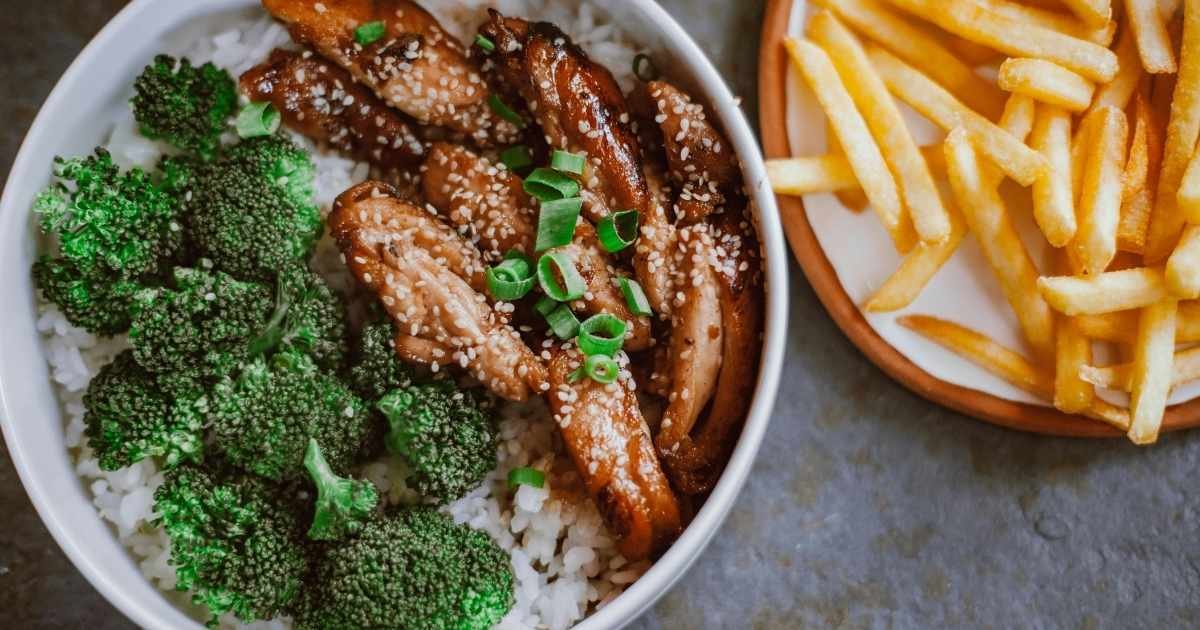As a beginner in fitness and nutrition, I struggled with what to eat. I’m not saying I was completely a couch potato all in the search for fitness; that hasn’t worked out for me or others like me.
I came to understand that muscle bulking entails more than just weight lifting; it requires proper and adequate nutrition. My personal experience, the internet, and discussions with fitness enthusiasts showed me the most effective way to gain mass.
I feel compelled to tell you how to eat to gain muscle so you don’t have to experience the bumps on the road I bumped into.
Understanding the Basics of Eating for Muscle Gain
To gain muscle mass, one has to be in a calorie surplus, meaning you have to take in more calories than your body expends in a day.
But it’s not just about eating more than you do on a normal day; it’s also about the kind of food you eat. This involves consuming specific proteins, healthy fats, and carbohydrates.
- Protein: The Building Block of Muscle
When creating a diet and exercise plan for muscle gain, protein is essential. Protein plays a vital role in muscle repair and muscle building.
Initially, I was only getting 60 grams of protein daily, and it was awful! I was crawling, making stink-slow progress. When I upped my intake to about 1g of protein per pound of body weight, that’s when the changes began to happen.
You can get protein from various sources:
- Lean meats like chicken breast, turkey, and lean cuts of beef.
- Fish, such as salmon and tuna.
- Dairy products like Greek yogurt and cottage cheese.
- Plant-based options like beans, lentils, and tofu for vegetarians or those who want variety.
- Carbs: Fuel for Your Workouts
There was a time I went too low on carbs because I thought they’d make me gain fat instead of muscle. I felt tired, sluggish, and my workouts suffered. That’s when I realized that carbs are your body’s main energy source, especially for intense workouts.
I now aim to get most of my carbs from whole grains, oats, sweet potatoes, and fruits. These provide sustained energy and help in muscle recovery. A good rule of thumb is to have carbs in your pre-workout meal to ensure you have enough fuel for a strong session.
- Healthy Fats: Don’t Fear Them!
Healthy fats are crucial for hormone production, including testosterone, which plays a key role in muscle building. I used to avoid fats, thinking they’d make me gain unwanted weight. But I was wrong. Adding sources of healthy fats like avocados, nuts, seeds, and olive oil to my diet helped me see better overall results.
- Eating Enough Calories: The Surplus Strategy
When I started taking my diet seriously, I used a calorie-tracking app to ensure I was eating in a surplus. It felt like a chore at first, but it helped me understand how much I was actually consuming.
To figure out your calorie needs, you can start by calculating your Total Daily Energy Expenditure (TDEE), which accounts for your activity level. Add around 250-500 calories on top of your TDEE to create a surplus that will support muscle growth without gaining too much fat.
My Meal Plan Strategy for Muscle Gain
Creating a meal plan helped me stay consistent and avoid guesswork. Here’s a breakdown of how I structure my meals:
- Breakfast: Scrambled eggs with spinach and whole-wheat toast, plus a protein shake with some blended fruits.
- Mid-Morning Snack: Greek yogurt topped with a handful of almonds or walnuts.
- Lunch: Grilled chicken breast, brown rice, and a side of mixed vegetables.
- Afternoon Snack: An apple or a banana with peanut butter.
- Dinner: Baked salmon, sweet potato, and steamed broccoli.
- Evening Snack: Cottage cheese with some sliced berries or another small protein shake.
This meal plan ensures I get a balance of protein, carbs, and fats spread throughout the day.
Don’t Forget About Timing and Hydration
Another key thing I learned is meal timing. Eating protein-rich foods around your workout can enhance muscle protein synthesis. I try to have a good meal about 1-2 hours before working out and a protein shake or small meal within an hour post-workout.
Hydration is also something you shouldn’t overlook. Muscles are about 75% water, so staying hydrated is essential. I aim to drink at least 3 liters of water daily, more if I have an intense workout.
Supplements: Are They Necessary?
I used to believe that supplements were a magic bullet for muscle gain. While they can help, they are not a substitute for whole foods. Basics like whey protein, creatine, and BCAAs (Branched-Chain Amino Acids) have been beneficial for me, but I remind myself that they only work if your diet is solid.
My Key Takeaways for Anyone Looking to Build Muscle
- Prioritize whole foods over processed options.
- Make sure you’re in a caloric surplus, and track it if you’re not seeing results.
- Balance your macronutrients—protein, carbs, and fats.
- Consistency is crucial. It took me months of following this plan before I started noticing real changes.
Building muscle is a journey that requires patience, dedication, and the right nutrition strategy. By learning to eat effectively, I was able to see much better results from my time at the gym. Hopefully, these tips and personal experiences can guide you toward your muscle-building goals. Enjoy the process, experiment with your meals, and find what works best for your body!











